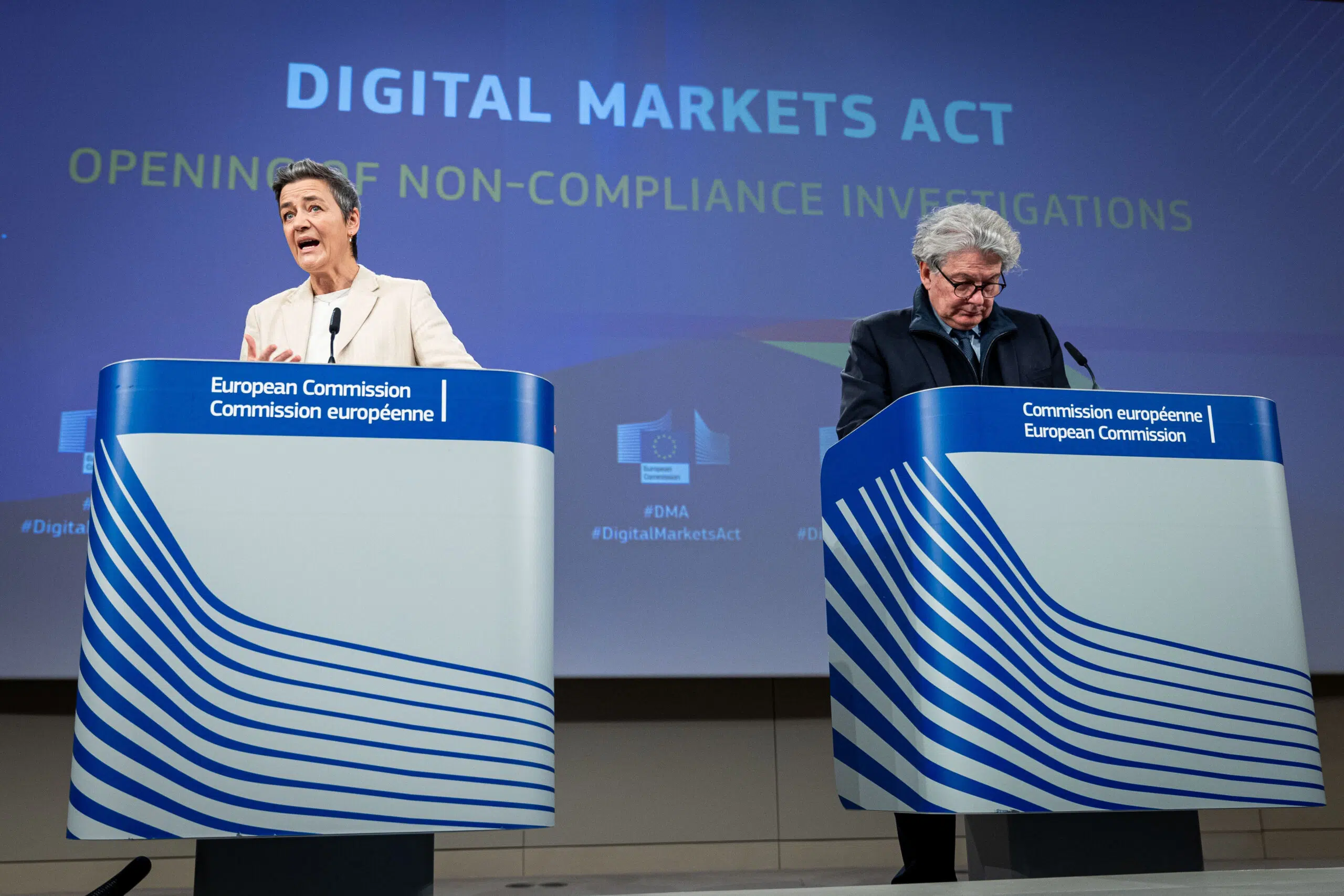Brussels – The EU tightens the digital market’s wide meshes. Just 18 days after the D-Day of new European legislation comes the notification of the first investigations. And they are for the usual, well-known giants of the digital space: Alphabet (the holding company headed by Google), Apple, and Meta. But others are also warned: “This does not mean that we approve all measures implemented by other gatekeepers,” warned EU Competition Commissioner Margrethe Vestager.
For now, the other three gatekeepers indicated by Brussels (Amazon, ByteDance, and Microsoft) get away with it. Reports on Digital Market Act (DMA) compliance, received by the European Commission on March 7, highlighted critical issues on five services: the steering and self-preferencing self-preferencing systems on Google Play and Google Search, Apple’s rules on piloting in the App Store and Safari’s choice screen, and the “payment or consent model” of Meta.
Decisions that “come only two weeks after the implementation deadline and show that compliance with the DMA is something we take very seriously,” Vestager said. In essence, the commission suspects that the measures the three digital giants put in place to comply with the legislation are not enough to meet their obligations. The DMA requires companies to allow apps they host on their app stores to redirect consumers to other domains for free, but Alphabet and Apple, according to initial findings, “impose several restrictions and limitations.” The holding company that owns the world’s best-known search engine is also under the magnifying glass for possible infractions in the management of the algorithm for displaying search results: the concern is that it “may lead to self-referral in relation to Google’s vertical search services (for example, Google Shopping, Google Flights, and Google Hotels) over similar competing services.”

Also on the dock is Steve Jobs’ creature, which may have paid no heed to the obligation to allow users to uninstall any software application on iOS easily. Apple would also use choice screens that make it less straightforward to select alternative default services, which the Cupertino company does not own. Finally, the Commission has initiated proceedings against Meta to investigate whether the recently introduced “pay or consent” model for EU users complies with the DMA, which requires gatekeepers to obtain users’ consent when they intend to combine or cross-use their data between different services on the main platform.
While the EU Commissioner for the Internal Market, Thierry Breton, rejoices at the speed with which the DMA is carrying out “a revolution” on the conditions to be met to benefit from Europe’s digital space, comes a retort from CCIA Europe, the Computer and Communications Industry Association to which all three investigated multinationals belong. According to CCIA’s senior vice president, Daniel Friedlaender, “the launch of the first preliminary investigations under the Digital Markets Act just days before the deadline for compliance undermines the idea of companies and the European Commission working together to implement the DMA successfully.” Friedlaender points the finger at “the timing of these announcements,” a move that “risks confirming industry fears that the DMA compliance process may end up being politicized,” the note reads.
The commission is also taking other investigative measures to gather facts and information to clarify whether Amazon may favour its branded products on the Amazon Store and to shed light on Apple’s new pricing structure for alternative app stores and app distribution from the web. Finally, Brussels ordered Alphabet, Amazon, Apple, Meta, and Microsoft to retain several documents that could be used to assess their compliance with EU rules to preserve available evidence and ensure effective enforcement.
Vestager has given herself 12 months to conclude the proceedings initiated today. At that point, the Commission will inform the affected gatekeepers of its preliminary findings and explain the measures needed to address Brussels’ concerns effectively. In the case of violations, Alphabet, Apple and Meta risk fines of up to 10 per cent of the company’s total worldwide turnover, and up to 20 per cent in the case of repeated violationsIn the case of violations, Alphabet, Apple and Meta risk fines of up to 10 per cent of the company’s worldwide turnover, and up to 20 per cent in the case of repeated violations.
English version by the Translation Service of Withub





